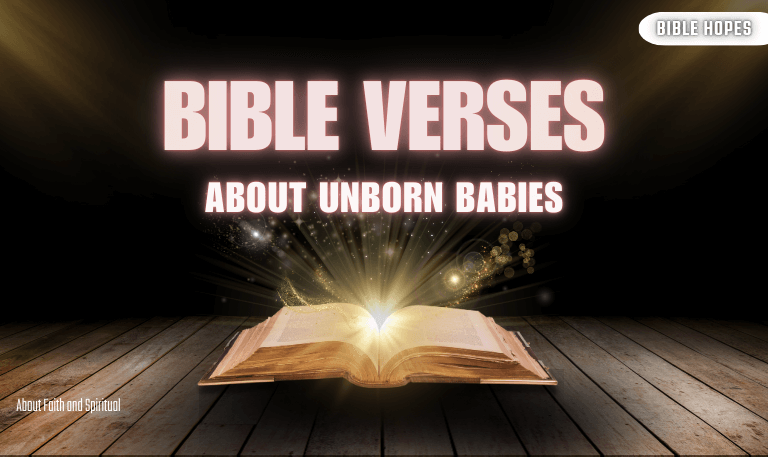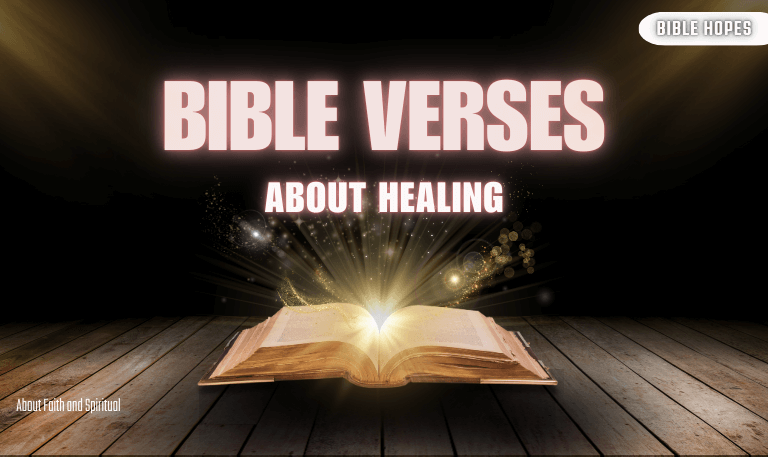The topic of unborn babies in the Bible is one that evokes deep theological reflection, especially within the context of modern ethical debates surrounding abortion, personhood, and the sanctity of life. The Bible offers multiple insights and references that highlight the importance of life from the moment of conception. Whether you are looking to explore pro-life views, Bible Verses About Unborn Babies, or how the Bible portrays the unborn, this article will offer comprehensive insights that draw from key scriptures and their spiritual significance.
Understanding the Biblical Perspective on Unborn Babies
What Does the Bible Say About Unborn Babies?
In the Christian faith, the Bible’s teachings on unborn babies are critical when discussing the sanctity of life. Scripture offers a foundational understanding that life begins long before birth, even in the womb. The Bible refers to the unborn as children, illustrating their inherent value and potential.
The concept of an unborn child being recognized by God is present throughout scripture. For example, Psalm 139:13-16 emphasizes that God forms the unborn child in the womb and knows them intimately even before birth. These verses suggest that God has a plan for each life from the very beginning.
Read Also: Bible Verses About Promises
Why Is Life in the Womb Important in Christianity?
For Christians, life is a sacred gift from God, and this belief extends to the unborn. Christianity teaches that life is sacred from conception until natural death, and the sanctity of life applies equally to those yet to be born. These foundational beliefs shape Christian views on the value of unborn life and influence debates on issues like abortion.
Theological Foundations: What the Bible Teaches About Life Before Birth
God as the Creator of Life
The Bible makes it clear that God is the creator of all life, both in the womb and outside of it. From the very first chapter of Genesis, we learn that humans are created in the image of God.
Genesis 1:27 states, “So God created mankind in his own image, in the image of God he created them; male and female he created them.” This underscores the inherent dignity of all human life.
In addition to being the Creator, God’s involvement in the formation of life extends into the womb. Psalm 139:13-16 is often cited by pro-life advocates as a powerful statement of God’s active role in creating life before birth. It reads: “For you created my inmost being; you knit me together in my mother’s womb.” This verse affirms the idea that life is not just biological but divine, planned and formed by God from conception.
God’s Knowledge of the Unborn
The Bible also emphasizes that God knows and has a purpose for every life, even before birth. Jeremiah 1:5 is one of the most significant passages to support this view: “Before I formed you in the womb I knew you, before you were born I set you apart.” This passage reflects the Christian belief that God’s knowledge of us precedes even our physical existence, highlighting the sanctity and purpose of each life.
Key Bible Verses About Unborn Babies
Psalm 139:13-16 – Formed in the Womb
Perhaps one of the most powerful verses in the Bible regarding unborn babies, Psalm 139:13-16 speaks directly to God’s intimate role in the creation of life. The passage reads:
“For you created my inmost being; you knit me together in my mother’s womb. I praise you because I am fearfully and wonderfully made; your works are wonderful, I know that full well. My frame was not hidden from you when I was made in the secret place, when I was woven together in the depths of the earth. Your eyes saw my unformed body; all the days ordained for me were written in your book before one of them came to be.”
This verse affirms that every unborn child is fearfully and wonderfully made, with a purpose written by God even before birth.
Read Also: Bible Verses About Loving Everyone
Jeremiah 1:5 – Known Before Birth
In Jeremiah 1:5, God speaks directly to the prophet, saying: “Before I formed you in the womb I knew you, before you were born I set you apart.” This passage is a testament to the idea that God’s plans for humanity are established long before birth, reinforcing the sanctity and intentionality of every life created.
Exodus 21:22-25 – The Protection of Unborn Life
In Exodus 21:22-25, the Bible provides guidance regarding the protection of unborn life in a legal context. It reads:
“If men who are fighting hit a pregnant woman and she gives birth prematurely but there is no serious injury, the offender must be fined whatever the woman’s husband demands and the court allows. But if there is serious injury, you are to take life for life, eye for eye, tooth for tooth, hand for hand, foot for foot.”
This passage highlights the seriousness with which God views harm to the unborn, reflecting the inherent value and rights of the unborn child. It is often cited in discussions of pro-life ethics, where the unborn are given legal and moral protection.
Luke 1:41-44 – Unborn John the Baptist Leaps in Elizabeth’s Womb
The New Testament offers another powerful image of the sanctity of life in the womb through the story of Elizabeth and Mary. When Mary visits Elizabeth, who is pregnant with John the Baptist, the unborn John leaps in Elizabeth’s womb at the presence of the unborn Jesus. Luke 1:41-44 reads:
“When Elizabeth heard Mary’s greeting, the baby leaped in her womb, and Elizabeth was filled with the Holy Spirit. In a loud voice she exclaimed: ‘Blessed are you among women, and blessed is the child you will bear!’”
This passage underscores the personhood of the unborn, highlighting that even in the womb, John the Baptist recognized the presence of Christ, a profound spiritual act.
Isaiah 49:1 – Called Before Birth
The Bible also teaches that individuals are called by God even before birth. Isaiah 49:1 says, “Before I was born the Lord called me; from my mother’s womb he has spoken my name.” This passage reinforces the concept of predestination and God’s plan for individuals long before they are born.
Theological Debates on Unborn Babies: What Does the Bible Really Say?
Is an Unborn Baby Considered a Person in the Bible?
One of the central debates in modern ethical discussions surrounding abortion and the status of the unborn is whether an unborn baby is considered a person in the eyes of God. The Bible’s answer seems clear: the unborn are regarded as persons with intrinsic value. Verses such as Jeremiah 1:5 and Luke 1:41-44 demonstrate that the unborn have a distinct identity and purpose according to God.
Read Also: Bible Verses for Unbelievers
Pro-Life vs. Pro-Choice: How Does the Bible Influence These Views?
The Bible is often cited by pro-life advocates to support the sanctity of unborn life. Verses like Psalm 139:13-16 and Exodus 21:22-25 highlight the divine role in creating life and the importance of protecting it. On the other hand, pro-choice arguments may focus on the autonomy of women and their right to make decisions about their bodies. However, a deeper study of biblical texts generally supports the pro-life stance, affirming the unborn’s intrinsic value.
Unborn Babies and God’s Protection
Psalm 127:3 – Children are a Heritage from the Lord
The Bible often refers to children as a blessing from God. In Psalm 127:3, it is written: “Children are a heritage from the Lord, offspring a reward from him.” This passage speaks to the divine nature of children, both born and unborn, highlighting their status as gifts from God.
Matthew 18:10 – The Protection of Children by Angels
In Matthew 18:10, Jesus says: “See that you do not despise one of these little ones. For I tell you that their angels in heaven always see the face of my Father in heaven.” This verse emphasizes divine protection over children, including the unborn. The imagery of angels watching over children further affirms the sacred nature of life, from conception onward.
Read Also: Bible Verses Do Not Worry About Tomorrow
Bible Verses About Unborn Babies FAQs
Q: What Does the Bible Say About Abortion?
A: The Bible doesn’t directly mention abortion, but it clearly affirms the sanctity of life through verses like Psalm 139:13-16 and Exodus 21:22-25. These verses highlight that God creates life in the womb and that life is sacred from conception.
Q: Does the Bible Regard an Unborn Baby as a Person?
A: Yes, the Bible regards the unborn as persons with inherent value. Scriptures such as Jeremiah 1:5 and Luke 1:41-44 show that God has a plan for the unborn and that they are considered persons even before birth.
Q: What is the Significance of Psalm 139:13-16?
A: Psalm 139:13-16 is significant because it demonstrates God’s active role in the creation of life, emphasizing that each unborn child is fearfully and wonderfully made by God, with a purpose from the very beginning.
Q: Does the Bible Say Anything About Protecting the Unborn?
A: Yes, Exodus 21:22-25 speaks about protecting the unborn, stating that harm to an unborn child should be taken seriously. The Bible underscores the importance of safeguarding life from conception.
Q: How Can Christians Advocate for Unborn Life?
A: Christians can advocate for the unborn by supporting pro-life causes, educating others about the biblical view of life, and praying for the protection of unborn children. Biblical teachings can inspire compassionate and respectful advocacy for life.
Conclusion
The Bible is clear that life is sacred from the moment of conception, and the unborn are valuable in God’s eyes. Scriptures like Psalm 139:13-16, Jeremiah 1:5, and Exodus 21:22-25 underscore the intrinsic value of unborn babies, emphasizing that they are known by God even before birth. Christian theology teaches that every life has a divine purpose, and God’s plan for the unborn is just as significant as the plan for those already born.
Christians are called to protect the sanctity of life and advocate for the unborn, ensuring that their rights are upheld. The Bible’s message is clear: life begins in the womb, and each unborn child is a reflection of God’s creative will and purpose.

![15 Bible Verses About Wicked Government [2025 Explained] 3 15-Bible-Verses-About-Wicked-Government-[2025-Explained]](https://biblehopes.com/wp-content/uploads/2025/05/15-Bible-Verses-About-Wicked-Government-2025-Explained.png)

